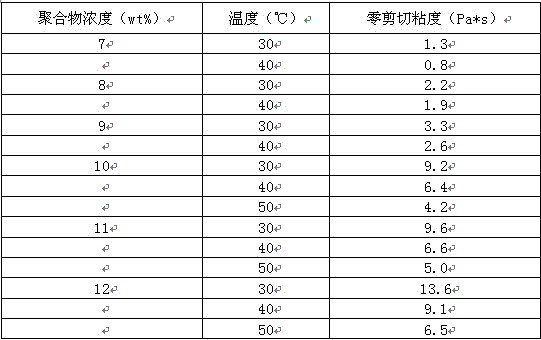Utilize acrylonitrile and vinyl chloride to prepare the method for anti-pilling acrylic fiber
An anti-pilling acrylic fiber, vinyl chloride technology, applied in the chemical characteristics of fibers, wet spinning, rayon manufacturing and other directions, can solve the problems of normal spinning, slow fiber formation, inconvenient operation, etc.
- Summary
- Abstract
- Description
- Claims
- Application Information
AI Technical Summary
Problems solved by technology
Method used
Image
Examples
Embodiment Construction
[0016] The present invention will be further described below in conjunction with embodiment, but should not limit protection scope of the present invention with this.
[0017] A kind of method utilizing acrylonitrile and vinyl chloride to prepare anti-pilling acrylic fiber, comprises steps as follows:
[0018] ① Dissolve acrylonitrile content of 85% to 95% and vinyl chloride content of 5% to 10% with a 40% to 60% NaSCN solution, more precisely, a NaSCN solution with a concentration of 50% to 60% through a high-speed dissolving machine , the content of sodium methacrylic sulfonate is less than 1%, and the polyacrylonitrile polymer has a viscosity-average molecular weight of 45,000 to 65,000. In order to ensure a better dissolution effect, the sodium thiocyanate solvent needs to be heated above 75°C. The main function of vinyl chloride is to reduce the chain regularity of polymers, reduce molecular rigidity, and increase fiber feel. The function of sodium methacrylate is mainl...
PUM
 Login to View More
Login to View More Abstract
Description
Claims
Application Information
 Login to View More
Login to View More - R&D
- Intellectual Property
- Life Sciences
- Materials
- Tech Scout
- Unparalleled Data Quality
- Higher Quality Content
- 60% Fewer Hallucinations
Browse by: Latest US Patents, China's latest patents, Technical Efficacy Thesaurus, Application Domain, Technology Topic, Popular Technical Reports.
© 2025 PatSnap. All rights reserved.Legal|Privacy policy|Modern Slavery Act Transparency Statement|Sitemap|About US| Contact US: help@patsnap.com


